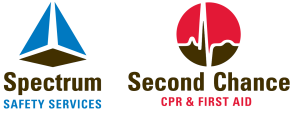 Heart & Stroke Foundation of Canada
Heart & Stroke Foundation of Canada  In Person
In Person  4 hours
4 hours
Taught by qualified Apex Training Solutions Intermediate First Aid and Heart & Stroke Foundation of Canada instructors, these two courses combined are recommended for those who work or study as healthcare providers (ie: Nursing, Medicine, Dentistry, Chiropractic, Rehabilitation, etc.)
Day 1 – Basic Life Support Provider CPR
Length Of Course: 4 Hours
Certification
- Healthcare Provider CPR Approved by Heart & Stroke Foundation of Canada
- Standard First Aid Approved by Occupational Health and Safety
- CPR Re-training Recommended Every Year
Course Outline
- Adult And Child CPR – One And Two Rescuer
- AED Training
- Infant CPR
- Artificial Respiration
- Adult, Child And Infant Obstructed Airway Management
- Advanced Airway Management – Bag Valve Mask
- Recovery Position
- Recognizing Signs And Symptoms Of Heart Attack
- Reducing Risk Factors Of Heart Disease
- Healthy Heart Living (Lifestyles)
- Disease Transmission And Barrier Devices
- Special Situations
Day 2 – Intermediate First Aid
Length of Course: 9 Hours
Certification
- Apex Training Solutions
- Approved by Occupational Health And Safety
- Valid 3 Years
Course Outline
- Legal requirements for workplace first aiders Acts and Regulations in Alberta
- S T O P Sign of Life
- Recovery position
- Severe external bleeding
- Amputations and care for amputated tissue
- Internal bleeding / Shock Unconsciousness / Fainting
- Principles of secondary assessment using SAMPLE, vital signs & head-to-toe exam
- Drowning, Hyperventilation, Asthma, Anaphylactic Reaction, Inhalation and Chest Injuries
- Head, spine and pelvic injuries (including rollovers, immobilization)
- Closed and open wounds
- Bleeding from scalp and ears
- Eye, mouth and nose injuries
- Thermal injuries (burns)
- Chemical and electrical injuries
- Poisons, bites and stings
- Bone and joint injuries of upper and lower extremities
- First aid kits – contents incl. barrier devices
- Cold emergencies (hypothermia, frost nip and frostbite)
- Heat emergencies
- Diabetic emergencies
- Seizures (convulsions)
- Emergency childbirth
Learn more about how you can advance your career with our certifications
Fill our the contact form and our education specialists will get back to you within 1-2 business days.
Or check our Frequently Asked Questions here.
[gravityform id="4" title="true"]
